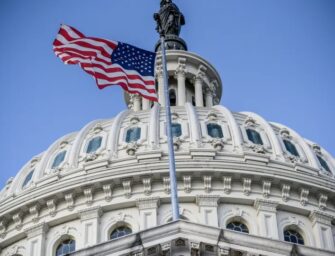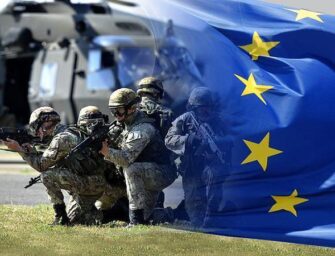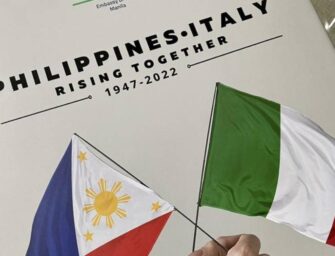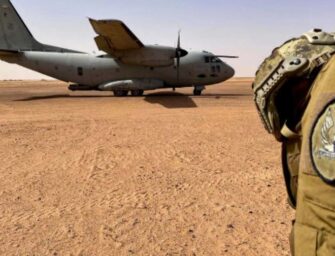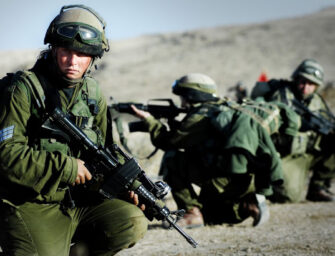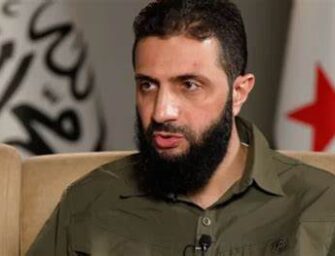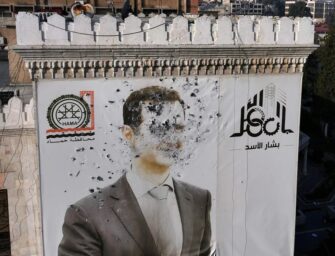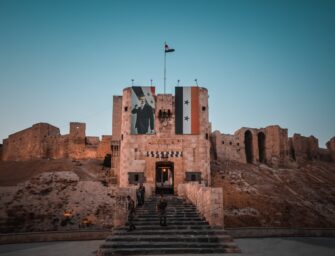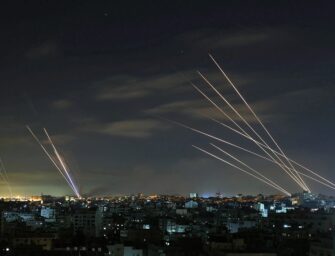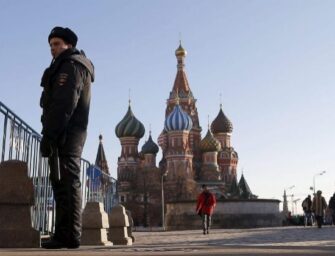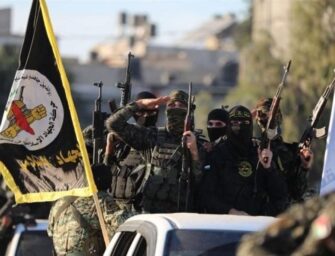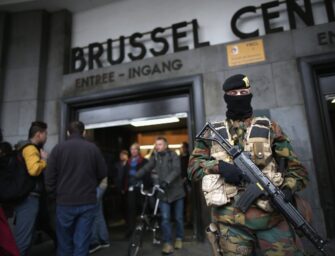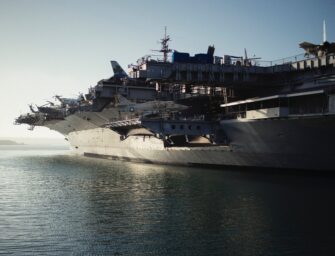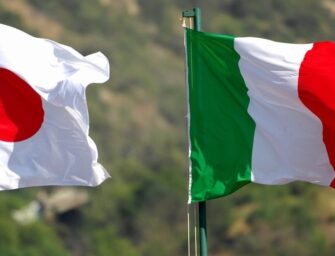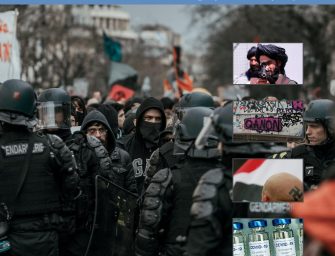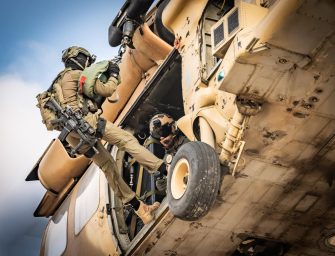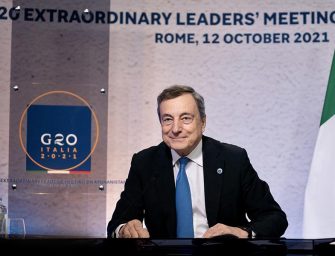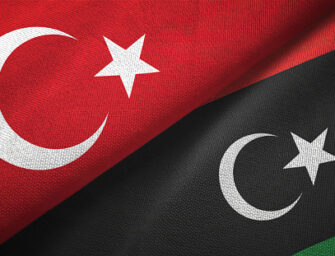The Egyptian strategy in Libya: between diplomacy and military intervention
by Alessia Melcangi, Atlantic Council – University “La Sapienza”
Download the full analysis (pdf)
The latest developments in the Libyan crisis seem to have given new impetus to the Egyptian diplomatic initiative; Cairo’s intention to temporarily abandon the military option in support of dialogue between rival groups comes as a result of the ceasefire announced by the Government of National Accord (GNA) of Tripoli at the end of August 2020. If the diplomatic option would be ineffective or would not guarantee Egypt’s strategic interests in that country, Cairo could go back to the military option, which was never com-pletely set aside
Latest developments in the Libyan crisis and Cairo’s intentions
The latest developments in the Libyan crisis seem to have given new impetus to the Egyptian diplomatic initiative: in fact, on September 23, President al-Sisi hosted a meeting in Cairo between the Libyan National Army’s leader, General Khalifa Haftar, and the spokesman of the Tobruk parliament, Aguila Saleh. The purpose of this talk was to solicit the warring parties to restart the political process under UN supervision with the aim of restoring security and stability in the country (Ahram, 2020).
Cairo’s intention to temporarily abandon the military option in support of dialogue between rival groups comes as a result of the ceasefire announced by the Government of National Accord (GNA) of Tripoli at the end of August 2020. Egypt is not new to this type of strategy which, since the fall of Gaddafi in 2011, has followed two main directions: on the one hand, Cairo uses political mediation as a tool to achieve a diplomatic solution to the conflict; on the other hand, logistically and militarily it supports Haftar’s offensive against Tripoli, together with the United Arab Emirates (UAE) and Saudi Arabia. Recently Egypt went as far as threatening to start a conflict for the defense of its own national security and its interests in Libya (Melcangi, 2020).
As a consequence of Ankara’s intervention in support of the GNA ‒, following the December 2019 agreements signed between Turkey and Libya on maritime border demarcation and military cooperation (Butler, Gumrukcu, 2020) ‒, Egypt decided to abandon the diplomatic option and recalibrate its moves in Libya. Turkey represents not only a geopolitical rival, whose strategic projection, particularly in the Eastern Mediterranean, represents a threat for al-Sisi, but also one of the fiercest supporters of political Islam that Cairo, together with the United Arab Emirates and Saudi Arabia always try to obstruct.
The LNA forces’ retreat from the Western front in April 2020, pushed Cairo to resume the diplomatic path, asking for a ceasefire: the motivation behind this move was to avoid the general’s collapse and the loss of Cyrenaica into the hands of Ankara. On June 6, 2020, al-Sisi, supported by Haftar and Aguila Saleh, announced the so-called “Cairo Declaration” (Mezran, Melcangi, 2020), an intra-Libyan resolution for the relaunch of the pacification process. However, the declaration provoked the strong opposition of Ankara and the government of Tripoli. The diplomatic option had therefore turned into a warning of war launched by al-Sisi against the GNA and its supporters, positioned near the so-called red line of Sirte-Al-Jufra, at the gates of the rich and disputed “oil crescent”.
Historically, Libya has been a country of great importance for Egypt from different perspectives: from a domestic security perspective, to avoid the spillover of violence into its territory and penetration of jihadist groups, especially from the porous frontier bordering Cyrenaica; from an economic viewpoint , to deal with the consequences of the drastic decrease in remittances from Egyptian migrants working in Libya, which represent a serious threat to Egypt’s stability and internal security. But also, to reaffirm its image as a geostrategic regional pivot ready to defend its interests in a disputed area as strategic as the Eastern Mediterranean.
Following the latest events, Cairo has decided to abandon its assertive posture and return to a diplomatic strategy: on September 29, 2020 an important talk between the military delegations representing the GNA and the Libyan National Army was held in Hurghada. The principal topic discussed in this meeting was the possible restart of negotiations within the 5+5 Joint Military Committee (JMC). Strongly supported by the United Nations Support Mission in Libya (UNSMIL), this meeting allowed Egypt to gain international recognition for its commitment to restarting peace dialogue between the various Libyan factions (UNSMIL, 2020).
Analysis, assessment, forecast
Al-Sisi, during his speech at the 75th session of the United Nations General Assembly, affirmed his support for restarting the political peace process under the aegis of the UN; but, at the same time, President al-Sisi stressed once again that violation of the red-line that goes from Sirte to Jufra, would trigger a strong military reaction by Egypt. So, Egypt seems to want to avoid an expensive military intervention with unpredictable results, but not at any cost. If the diplomatic option would be ineffective or would not guarantee Egypt’s strategic interests in that country, Cairo could go back to the military option, which was never completely set aside. Considering the extreme fluidity of the Libya context, the choice between weapons and diplomacy is far from being obvious (Melcangi, 2020).
Photo: M.T. Elgassier
Download the full analysis (pdf)
The Turkish strategy in Libya: political advantage through Security Force Assistance
Libya: consequences of the Libya-Turkey joint military collaboration
by Claudio Bertolotti
On 15th September, the UN Security Council tasked Secretary-General Antonio Guterres with appointing a special envoy to broker peace in Libya. Meanwhile, Russia and China abstained from voting on the resolution which would also extend the UN mission in the country.
The following day (16th September) the Prime Minister of Libya’s Government of National Accord (GNA), Fayez al-Sarraj, announced his intention to step down, prompting a flurry of speculations about his reasons for doing so. Many believe that Sarraj’s decision was brought about by strong international pressure – particularly by the US – with the intent of appeasing international parties disturbed by the agreements he signed with Turkey, specifically the maritime border demarcation agreement (exclusive economic zone – EEZ) which angered Europeans in general, and France and Greece in particular. Following the agreement and with Turkey’s help, the internationally-recognized premier, whose government controls only parts of western Libya, was able to quash last June a year-long offensive on the capital by eastern commander Khalifa Haftar.
This is a political evolution with serious strategic consequences, despite the fact that up to now, Libya remains divided into two main fronts (Tripoli on the one hand, Tobruk on the other), where multiple actors are pursuing their differing agendas. Ankara’s relations with Tripoli could be seriously affected by the above-mentioned resignation, should it ever materialize, as Turkish and Qatari Defense Ministers signed a deal on 17th August, aimed at providing assistance in restructuring the military in the country. The Government of National Accord of Libya (GNA) and Turkey already started implementing a series of programs to reconstruct the military in the war-torn country: the news was announced by Defense Minister Salah Eddine al-Namrush on 20th September.
The programs, which officially aim to establish a military force in line with international standards, include the restructuring of the armed forces, air defenses, counter-terrorism units, special operations’ units and the navy. Turkish military advisers are expected to provide training and logistical assistance in cooperation with Qatar, in order to re-establish a regular army in Libya.
Turkish military will provide assistance in restructuring the irregular and informal cluster of militias which now constitutes the Libyan Army, turning it into a regular army based on the model used for training the Azerbaijani Army
According to “Daily Sabah” (20th September, 2020) the Turkish military will provide assistance during a transition phase which is expected to lead -through a disarmament, demobilisation and reintegration (DDR) process- to the transformation of the irregular and informal cluster of militias which is now the Libyan Army, into a regular army based on the model that was used when Turkish forces provided training and assistance to their Azerbaijani counterparts. Turkish air force pilots also provided training, and the Azerbaijani military received technical equipment support from Turkey. The process launched by Turkey and Qatar in Libya aims at ‘standardizing’ training and recruitment (“Daily Sabah”, 2020).
So on the one hand, Ankara supports the GNA by means of a Security Force Assistance (SFA) mission, formally implemented through bilateral agreements with Tripoli; the mission includes military equipment and weapons’ supply which Ankara send to Tripoli in violation of the UN arms embargo – imposed by the United Nations Security Council Resolutions (UNSCR) 1970 (2011), 2292 (2016) and 2473 (2019) –; it also exposes the shortcomings of EUNAVFORMED “Irini” mission, which is supposed to prevent weapons’ supply to Libya (Bertolotti, 2020). Turkey’s deployment of military personnel goes hand in hand with the supply of at least 10 types of military equipment consisting of: electronic warfare systems, anti-tank guided missiles, combat drones, self-propelled air defense guns and artillery, surface-to-air missile systems, frigates and fighter ground attack aircraft (Lederer, 2020).
On the other hand, and this represents the most critical aspect, several sources ascertained the presence of Syrian mercenaries sent by Turkey to Libya to fight on the GNA side, consisting in at least 5,000 Syrian fighters, partly belonging to the so-called Syrian “Hamza Division” as well as the extremist “Sultan Murad” group (which is among the Turkish-backed insurgent groups which volunteered to send fighters to Libya); these fighters, who operated with Ankara in Syria’s war, were then sent to help Tripoli-allied militias fight the so-called “Libyan National Army” (LNA) led by the east-based military commander Khalifa Haftar (Magdy, 2020), and were provided with Fnss Acv-15 armoured vehicles, Milkor Mgl grenade-launchers, and US Bgm-71 Tow anti-tank missiles. This presence is likely to decrease security and generate a strong and adverse reaction from the Libyan population. The GNA is probably aware of that and it therefore facilitated the relocation of these jihadi Syrian mercenaries to Azerbaijan, where hostilities against Armenia are on the increase, as well as Turkey’s ambitions.
Focussing on the opposite front, the United Arab Emirates (UAE), Egypt and Russia military support to the LNA is all but marginal.
The UAE deployed military personnel and supplied at least five types of military equipment to Libya, including armored personnel carriers, patrol vehicles and a French Dassault Mirage 2000-9 jet fighter (Lederer, 2020).
Russia transferred at least two types of military equipment into Libya, namely a Mig-29A fighter jet operating from the al-Jufra airbase and a Sukhoi SU-24 supersonic attack aircraft operating from both al-Jufra and al-Khadim airbases, as well as “a main battle tank upgrade” for an unidentified Russian private military company (Lederer, 2020); as the Russian government does not officially acknowledge the mercenaries’ existence, it can deny or play down any Russian casualties while maintaining a military presence in the country. The Wagner group is thought to have transferred “armed private military operatives and military equipment into Libya” to support Haftar’s military operations, including two armored personnel carriers. Wagner military operatives also took part in the withdrawal of Haftar’s forces from Bani Walid on 27th May and on 1st July; Wagner’s operatives were reported to be based at five airbases – al-Jufra, Brak, Ghardabiya, Sabha and Wadden – and at the Sharara oil facility, the country’s largest (Lederer, 2020). Wagner’s involvement in Libya consists in the deployment of 800 to 1,000 personnel since October 2018 and in providing technical support for repair of military vehicles and participation in combat operations (BBC, 2020). Its members have been active as artillery and air observers, as well as in “providing electronic countermeasures expertise and deploying as sniper teams”. The personnel were mainly Russian, but there were also nationals of Belarus, Moldova, Serbia and Ukraine (Lederer, 2020; BBC, 2020).
The 10 other companies accused of violating the arms embargo by providing logistical support to Haftar’s forces include airlines from Kazakhstan, Syria, Ukraine and Tajikistan and two UAE companies (Lederer, 2020).
The resupply of both sides by air was extensive, with flights from the UAE to western Egypt and eastern Libya, and from Russia via Syria to eastern Libya to reinforce the LNA – and from Turkey to western Libya to reinforce the GNA (Lederer, 2020). As for shipments by sea, five vessels destined for government ports flying flags of Albania, Lebanon, Tanzania and Panama were in “non-compliance” with the arms embargo, along with two, destined for Haftar’s eastern ports. One vessel flying a Liberian flag has a UAE owner and the other, flying a Bahamas flag, has a Japanese owner (Lederer, 2020).
Main events in the Maghreb and the Mashreq areas – September
Algeria: The growing importance of Algeria-Turkey relations
Both Algeria and Turkey are keen to build a relationship that is mutually beneficial- but challenges remain. Instability in the broader Middle East, in particular Libya, and a desire to broaden political and economic links, have brought Algeria and Turkey closer. Deepening relations between the two countries is still a relatively recent phenomenon. The “Friendship and Cooperation Agreement” signed in 2006 in Algeria under the current AK Party government, marks one of the first attempts by Ankara to re-calibrate its relations with the West and the global south. Since then, there have been an additional three state visits by Erdogan, the latest in January 2020, following the departure of Algerian President Abdelaziz Bouteflika who was pushed out of power and forced to resign in April 2019 (Gjevori, 2020).
Egypt: Egypt cuts interest rates by 50 bps as inflation subsides.
Egypt’s central bank unexpectedly cut its main overnight interest rates by 50 basis points on September 24th, saying exceptionally low inflation gave it room to help boost the economy. The bank’s Monetary Policy Committee (MPC) reduced the lending rate to 9.75 percent and the deposit rate to 8.75 percent. Inflation remained well below the central bank’s target range of 6 percent to 12 percent (MPC, 2020).
Israel: a new peace deal with the United Arab Emirates
US President Donald J. Trump and Israeli Prime Minister Benjamin Netanyahu on September 15th joined the foreign ministers of the United Arab Emirates and Bahrain at the White House to mark historic normalization agreements between Israel and the two Arab countries. Israel officially established full diplomatic ties with Bahrain and the United Arab Emirates (UAE). On the one hand, the agreement is a sign of Middle East peace, on the other hand it could be considered as the establishment of a new front against Iran and Turkey.
Lebanon: Macron attacks Hizbollah for failure to form Lebanon government
In less than a year, Lebanon has been hit by an economic meltdown, mass protests, financial collapse, a virus outbreak and a huge explosion in August that virtually wiped out the country’s main port, killing more than 190 people and causing up to $4.6bn worth of damage to the capital Beirut.
Recently, French president warns of ‘civil war’ and calls on Beirut’s politicians to compromise: French president Emmanuel Macron blamed the Iran-backed political party and paramilitary group Hizbollah for sabotaging the French-sponsored process to form a Lebanese crisis government and called on Beirut’s political class to try again over the next six weeks. Macron’s speech came after Lebanon’s prime minister-designate resigned on September 26th, saying he was unable to form an emergency government to tackle the overlapping crises which have left Lebanon suffering its most severe turbulence since its 15-year civil war ended in 1990 (Cornish, Abboud, 2020).
Morocco: Moroccan security chief warns of terror ‘time-bomb’ in the region
The Moroccan security chief Abdelhak Khiame, head of the Central Bureau of Judicial Investigation (BCIJ), warned that the so-called group Islamic State “has developed in the Sahel-Sahara region, with the conflict in Libya and in countries like Mali which do not control their security”. The Sahel covers western and north-central Africa. “Terrorist cells and terrorism are growing in the region but also organised crime networks, drug trafficking, weapons and human beings”.
About economy, the Minister of Economy, Finance and Administration Reform Mohamed Benchaâboun stated that the national economy is expected to grow by 4.8% in 2021. Given the scenario of the International Monetary Fund (IMF) concerning the recovery of the world economy (+5.2%), notably in the euro zone (5.3%), national economic growth should stand at 4.8%». However, this growth could not completely offset the economic contraction of 2020, which is forecast at -5.8%, due to the postponement of the recovery of some sectors such as tourism and related activities, as well as the deterioration of the labor market and corporate investment – the Minister stated.
Syria: Carabinieri arrest Italian ‘ISIS bride’ in Syria
The ROS unit of Italy’s Carabinieri police said September 29th that it has arrested Alice Brignoli, an Italian ‘ISIS bride’, in Syria. Brignoli was the wife of Mohamed Koraichi, an Italian with Moroccan roots who became an ISIS militant. The couple left Italy to join the so-colled Islamic State (IS) in Syria in 2015, taking their three children with them. Koraichi, who is thought to have died, took part in IS military operations while the ROS said that Brugnoli had an “active role in teaching the children the cause of the jihad”. She is accused of criminal association for terrorism. The ROS unit tracked down Brignoli and her four children – she gave birth to her fourth child in Syria – and have brought them back to Italy (ANSA).
UK government probing cyber-attack over Syria propaganda leaks. Hackers have penetrated the computer systems of the UK’s foreign ministry and taken hundreds of files detailing the country’s controversial propaganda programmes in war-torn Syria. In a security breach of enormous proportions, the hackers appear to have deliberately targeted files that set out the financial and operational relationships between the Foreign, Commonwealth and Development Office (FCDO) and a network of private-sector contractors that have been covertly running media platforms in Syria throughout the nine-year civil war (Middle East Eye, 2020)
Tunisia: Tunisia rejects any military solution in Libya
Tunisian Prime Minister Hichem Mechichi reiterated on September 28th that he rejects any military solution in Libya and intervention in its internal affairs. Addressing heads of Tunisian diplomatic missions, he said combining efforts to push the political settlement forward through an intra-Libyan dialogue under UN supervision. In response to the UAE and Bahrain signs of the US-sponsored agreements to establish diplomatic relations with Israel, Mechichi also stressed on Tunisia’s firm position on supporting the legitimate rights of the Palestinian people based on the 2002 Arab Peace initiative (Thabeti, 2020).
WAR AND PEACE IN THE MEDITERRANEAN: understanding the Turkish escalation between the Chinese expansionism in Africa and the reshaping of Middle Eastern equilibria
by Andrea Molle
The renewed interest in the Mediterranean, too often considered as a secondary theater in the context of International Relations, derives from several medium and long-term processes that are affecting the global geopolitical equilibria. In particular, it is the consequence of an aggressive Chinese trade policy in Sub-Saharan Africa, which has intensified in the last decade and sees many African states, such as Kenya and Congo, for example, reduced to colonies or in a de facto subordination to China’s interests.
This dynamic is echoed by Beijing’s desire to complete its Belt and Road Initiative, affirming itself as a privileged trading partner of the most important powers within the EU to force it in a relationship of strong dependence. This scenario is made possible by the vacuum created with the protectionist and isolationist turn of the USA led by Donald J. Trump, who seems to lack any coherent international strategy. Moreover, it is a consequence of the lack of a coordinated European strategy in foreign affairs, as demonstrated by the recent Italian interest in becoming a closer partner to China independently from its partners’ choices.
The intensifying of migratory fluxes, aggravated by climate change, corruption, and the increased radicalization in Africa, is a symptom of the destabilization resulting from the Chinese expansionist policy that handed control of critical commercial routes and hubs over to Beijing. Faced with a substantial erosion of their economic systems, mostly caused by the quasi-monopolies established by Chinese companies and investors and the consequent social crisis, more and more people leave Africa to seek fortune in Europe, accentuating the demographic crisis of the continent. Paradoxically, such an easing of demographic pressure contributes to the perpetuating of Chinese control over African governments, hence aggravating the crisis and divisions within the European Union.
Moreover, the crisis is exacerbated by the recent Turkish initiatives aimed to gain a hegemonic role in the Maghreb and the Eastern Mediterranean. This pitch invasion is seemingly facilitated by the shared Islamic culture to which Turkey claims the role of Defensor in open competition with other countries such as Saudi Arabia. Once again, this is a consequence of America’s withdrawal and the lack of a single European voice. With the expected resignation of Fayez al-Sarraj, the head of the Government of National Accord (GNA) recognized by the United Nations, the effects on the current Turkish activities in Libya are hard to anticipate. Nevertheless, the intentions of Ankara remain unchanged: to become the privileged Chinese partner by taking advantage of this economic and political conjuncture.
To better understand Ankara’s strategy while not underestimating its chances of success, it is paramount to consider the totality and complexities of the Sino-Turkish relations. We are witnessing several signals. First of all, a softening of visa policies between the two powers has been underway for years. In addition to intensified cultural exchanges, China has recently granted Turkey considerable financial resources to support the industrial and military development plans of the government led by Erdogan. To overcome its structural military inadequacies, Turkey is now rumored to considering the purchase of fifth-generation Shenyang J-31 stealth fighter aircraft. The opening to a partnership with China has been made possible by the exclusion of Turkey from the Lockheed Martin F-35 initiative, wanted by the US. It also represents a further step towards Turkey’s exit from NATO. Should it happen, the loss of the Turkish partner would undoubtedly cause a crisis in the Atlantic Alliance, which is already in a state of suspended animation according to several international observers. A possible weakening of NATO is also a goal of Putin’s Russia, which, despite the current political tension with Turkey, is already providing the country with anti-aircraft systems and is pressing Ankara to purchase its Sukhoi Su-57 stealth fighters.
In this context, the normalization of the diplomatic relations between Israel and some of the Middle Eastern powers, such as the United Arab Emirates and Bahrain, and the unconfirmed rumors of possible future agreements for developing common military assets, should not be at all surprising. Indeed, this event cannot be just considered due to Trump’s plan to bring stability to the Middle East, which many commentators describe as insufficient if not wholly nonexistent. Instead, it must be understood as evidence that the Arab world, in a perpetual crisis of relevance, is aware of the profound changes in the geopolitical equilibrium of the Eastern Mediterranean and is trying to gain the most advantageous position possible. Finally, what seems to be consolidation now may appear as an anti-Turkish front. However, on a closer look, it is more likely to form an opposing front to Chinese neo-colonial reaches in Africa, or at least contain them while reducing at the same time the dependency from the West.
This game of Risk against the Sleeping Giant will eventually involve all those Persian Gulf countries, which were once sworn enemies of the Jewish state, which today think of Israel more and more as a natural ally. To them, Tel Aviv will represent not only a strong military partner but also an economic and technological hub capable of rivaling Beijing. Such a realignment of alliances and loyalties would probably lead to a solution to the long-standing Israeli-Palestinian conflict. This result, however, will not be due to either the American mediation or the joint efforts of various nations and international organizations. But instead to the emergence of a common enemy at the horizon. If a solution is therefore reached, it will, unfortunately, be at the expense of the Palestinians. Clinging to obsolete rhetoric and increasingly marginalized by their former allies, they do not seem willing to accept the changes and adapt their long-term objectives and strategy accordingly, falling into complete irrelevance.
With tensions with China predictably on the rise and in the face of the recent threats to Greece, the US has recently taken a stand, causing the temporary withdrawal of Turkish exploration vessels in the territorial waters controlled by Athens. However, coming “too late and one dollar short,” the US is not signaling any intent to get involved in the Eastern Mediterranean. On the contrary, responding to the American intervention and following the announcement of military exercises planned by the Greek armed forces in the northern Aegean, Ankara accused again Athens of violating the 1923 Treaty of Lausanne, which ended the Greek-Turkish war (1919- 1923) by redesigning the new borders between the two countries. It is not the first time that Turkey has accused Greece of violating the Treaty. The first time was in June 1964, following the deployment of a Greek motorized brigade on the island. However, this time Turkey does not seem to rule out a military reaction to the exercises recently announced by Athens.
On the northern shore of mare nostrum, things are not going any better. Although it is clear that the game that is being played in the Mediterranean, and that involves Greece and Cyprus, is an existential threat to European and Western interests, including the survival of the European Union, few nations have fully understood it. Amongst the European capitals, the change in the balance that for years accompanied the Union’s Mediterranean policy seems to be fully appreciated only by Paris. Accused of only aiming to control negligible energy resources, the second powerhouse of the EU has instead always pushed for a more incisive international role for Europe and its military integration. France is left alone while Berlin acts as Germany is still a trading state, interested only in short-term economic gains and not to upset the precarious balance reached with Turkey on the issue of migrants from the Balkan route.
As for Italy, Rome seems to think its best option is to take once again on the very same posture of equidistance and neutrality that has reduced it to a background actor in the international relations system with the addition of a dangerously ambiguous relationship with China. Nevertheless, France, which appears to be the natural candidate to lead the Union’s foreign policy, cannot expect to win this game alone. Geography is not an opinion: without Italy, the second naval power in the EU, Europe stands no chances of being relevant. It will inevitably be doomed in a humiliating position of subjugation.
Main events in the Maghreb and the Mashreq – August
Algeria: beyond the crisis, Algeria allows private banks, airlines, sea transport firms
Algeria will allow its private sector to set up banks as well as air and sea transport companies for goods and passengers to reduce spending, President Abdelmadjid Tebboune said on 18th August. The move is part of wider reforms by the OPEC member to cope with financial problems caused by a sharp fall in energy export revenues, the main source of state funding for the North African country. Elected in December 2019, Tebboune wants to encourage private investors and improve the investment climate in an effort to develop the non-energy sector and reduce reliance on oil and gas.
Algeria’s foreign exchange reserves have fallen to $57 billion from $62 billion in January, while energy export revenues are expected to reach $24 billion this year compared with $33 billion in 2019, Tebboune said. Energy earnings currently account for 94% of total exports and the government aims to bring that figure to 80% from next year, while increasing the value of exports of non-energy products to $5 billion from $2 billion now, he added. To achieve that goal, the authorities will allocate $14.84 billion to help finance investment projects for the coming months (MEMO – Middle East Monitor, 2020).
Egypt: Greek deals with Egypt, Italy
The agreement for the partial designation of an exclusive economic zone (EEZ) between Greece and Egypt in the eastern Mediterranean was signed on August 6 in Cairo. For Athens, the deal effectively nullified a maritime accord between Turkey and the internationally recognized government of Libya signed last year. This agreement is part of a broader strategy of settling bilateral issues, building alliances with third parties in a way that promotes national interests, based on respect for international law. It is also a balanced agreement that is fully in line with the United Nations Law of the Sea, a piece of international law in which Turkey is one of only 15 countries in the whole world to not sign or ratify. The agreement with Egypt came after Greece signed a deal with Italy on June 9 which effectively extended a 1977 agreement between the two states on continental shelves in the Ionian Sea.
Israele: a new peace deal with the United Arab Emirates
Israel Prime Minister Benjamin Netanyahu and UAE Crown Prince Mohammed bin Zayed had agreed to a peace agreement: Israel it will temporarily “suspend” plans to annex the West Bank, as part of a new peace deal. The deal was announced by US President Donald Trump.
The UAE and Israel plan to exchange embassies and ambassadors, according to the statement. It will be the third Arab country to open relations with Israel, after Egypt and Jordan. Netanyahu formally thanked Egyptian President Adel-Fattah el-Sisi and the governments of Oman and Bahrain for their support to the normalization of relations between Abu Dhabi and Jerusalem.
But Palestinian Authority (PA) President Mahmoud Abbas trashed the peace agreement as “a betrayal of Jerusalem.” In a statement read out on Palestine TV, Abbas spokesman Nabil Abu Rudeineh said, “The Palestinian leadership rejects what the United Arab Emirates has done and considers it a betrayal of Jerusalem, the Al-Aqsa Mosque and the Palestinian cause. This deal is a de facto recognition of Jerusalem as the capital of Israel. The PA also announced it was immediately withdrawing its Ambassador to the UAE, according to a statement on the Palestinian news agency Wafa. Officials from the Palestine Liberation Organization (PLO) rejected the agreement, as did Palestinian militant group Hamas.
Lebanon: the Beirut explosion a Turning Point for Lebanon?
On the afternoon of 4th August 2020, two explosions occurred at the port of the city of Beirut, the capital of Lebanon. The second explosion was extremely powerful, and caused at least 177 deaths, 6,000 injuries, and US$10–15 billion in property damage, leaving an estimated 300,000 people homeless. The main blast at Beirut’s port was caused when an estimated 2,750 tons of ammonium nitrate had been ignited: ammonium nitrate is a highly combustible material used to make fertilisers and bombs. The appalling negligence that left more than 2,700 tons of ammonium nitrate stored in the port in unsuitable climatic conditions, with no expert oversight, for more than six years demonstrate the endemic corruption and incompetence of a country devasted by decades of settarian conflicts, absence of a governance and cynical political games played by regional States and internal actors. Exacerbated by the pandemic, the chronic corruption and misrule had brought the economy to ruin; because a long term economic and social crisis the State is going to fail, although Lebanon has been a failing state for years.
For months prices have been soaring and the middle class has been sinking into poverty and despair. For weeks, before the explosion, residents of the capital demonstrated against mismanagement and economic uncertainty. Since the day of the explosion, protesters tried to break the police and army cordons; as consequence, Lebanon’s parliament has approved a state of emergency that grants sweeping powers to the army: the state of emergency allows the army to curb free speech, freedom of assembly, and freedom of the press, as well as to enter homes and arrest anyone deemed a security threat. But it was not enough to contain the mass protests: the demonstrations prompted Prime Minister Hassan Diab and his cabinet to resign: but the crisis is too deep to be resolved by a change of management.
The impact of the crisis is terrific, especially in the urban areas. People try to leave or survive thanks to economic support from relatives abroad; others are resorting to some support from Hezbollah. Economic sanctions have made Iran less generous, but Hezbollah continues to maintain a widespread patronage network. The main short-term consequence is fragmentation and criminalisation. In the long term, it remains to be seen in which sphere of influence Lebanon ends up. Iran is trying to exploit the deadlock, but cannot alleviate its financial need. Hezbollah is now increasingly looking to China, such as the government that is trying to attract Chinese investment and China itself sees an additional hub in the East Mediterranean (in addition to the bridgeheads it already has in Egypt and Greece), (Holslag, 2020).
Libya: Turkey and Qatar sign military cooperation deal with Libya government
According to Ahval News, Turkey and Qatar have signed a tripartite deal with the Libyan government for military cooperation, in a new development set to enhance the government’s defence against the forces of Khalifa Haftar. The agreement, which was announced by Libya’s Deputy Defence Minister Salam Al-Namroush on 17th August, will establish military facilities and training programmes within the country. This cooperation will include Qatar’s funding of military training centres and the establishment of a trilateral coordination centre and Turkish naval base in the city of Misrata. Consultation will also be provided to Libyan government forces as part of the agreement.
Italy, which has been present in Misrata for years with its own military hospital, has been removed from the area, making the efforts made so far in vain. The same Italian staff will be redeployed near the capital Tripoli.
Syria: U.S. troop levels in Iraq and Syria would most likely shrink in the coming months
The top American military commander in the Middle East said that U.S. troop levels in Iraq and Syria would most likely shrink in the coming months, but that he had not yet received orders to begin withdrawing forces.
Gen. Kenneth F. McKenzie Jr., the head of the Pentagon’s Central Command, said the 5,200 troops in Iraq to help fight remnants of the Islamic State and train Iraqi forces “will be adjusted” after consultations with the government in Baghdad.
General McKenzie said he expected American and other NATO forces to maintain “a long-term presence” in Iraq — both to help fight Islamic extremists and to check Iranian influence in the country. He declined to say how large that presence might be, but other American officials said discussions with Iraqi officials that resume this month could result in a reduction to around 3,500 U.S. troops.
Despite President Trump’s demand last fall for a complete withdrawal of all 1,000 American forces from Syria, the president still has some 500 troops, mostly in the country’s northeast, assisting local Syrian Kurdish allies in combating pockets of ISIS fighters (Schmitt, 2020).
Morocco: Morocco, Portugal Pledge to Fight Against Irregular Migration
Portugal and Morocco have pledged to join efforts to curb irregular migration: Rabat and Lisbon announced the move in a statement following a videoconference between Portugal’s Minister of Internal Affairs, Eduardo Cabrita, and Morocco’s Minister of the Interior, Abdelouafi Laftit. The two officials built the conference’s talking points on the strong cooperation between Morocco and the European Union on security issues. They expressed their governments’ readiness to “intensify” their security cooperation within the broader EU-Morocco agenda of preventing and fighting against “illegal migration and human trafficking.” According to reports, the increasing shift towards Portugal is directly linked to Morocco’s success in curbing migrants’ attempts to reach Europe through Spain, which has long been the traditional route of waves of irregular migrants in recent years (Tamba, 2020).
Tunisia: Tunisia cracks down on migrant departures. Economic crisis worsens
Thousands of migrants disembarked on Lampedusa and Sicily in July and August. The governor of the Sicilian region has called on the federal government to call a state of emergency with hotspots above capacity and a number of migrants testing positive for coronavirus. The majority of the migrants who reportedly disembarked on Lampedusa and Sicily came from Tunisia. Italian authorities reported that in 2020, nearly half of the over 16,000 people who have landed on Italy’s shores departed from Tunisia.
Following pressure from the Italian foreign ministry, Tunisia announced on August 6 that it had made available more means to counter irregular migrant departures from the North African country. Tunisia has announced that it has made available naval units, surveillance devices, and search teams at Mediterranean crossing points to counter irregular migrant departures (ANSA).
Italy’s Interior Ministry has released €11 million ($13 million) to Tunisia’s government for use in efforts to stem the flow of migrants. On 18th August, Italian Interior Minister Luciana Lamorgese and Foreign Minister Luigi Di Maio visited Tunis, accompanied by European Commissioner for Home Affairs Ylva Johansson and European Commissioner for Enlargement and Neighbourhood Policy Oliver Varhelji.
The decision arrived in a critical moment for the country both at economic and political level: the economic situation is worsening and the tourism sector’s revenues down 56% at the end of July to 1.2 billion dinars compared to 2.6 billion in the same period last year (ANSA). Economic crisis is a push factors for Tunisian migrants. At political level, Tunisia’s prime minister-designate Hichem Mechichi said he would form a purely technocratic government following wrangling among political parties over the formation of the country’s next administration. The decision will likely put the prime minister-designate in confrontation with the Islamist Ennahdha Party, the largest political group in parliament, which announced it would oppose the formation of a non-political government. However, the proposal for a government of independent technocrats without political parties will win support from the powerful UGTT trade union and some other parties, including Tahya Tounes and Dustoury el Hor. Protests have erupted in the country’s interior this year over widespread unemployment, lack of development and poor public services in health, electricity and water.
Main events in Maghreb and Mashreq – July
by Claudio Bertolotti
original article in “Osservatorio Strategico” – Ce.Mi.S.S.: english version – italian version
Israel and Egypt
Israel will begin exporting natural gas to Egypt in November, with volumes eventually set to reach seven billion cubic metres a year. The supplies will mark the start of a $15bn export agreement between Israel’s Delek Drilling and US-based partner Noble Energy with an Egyptian counterpart in what Israeli officials called the most significant deal to emerge since the neighbours made peace in 1979. The deal signed early last year will bring natural gas from Israeli offshore fields Tamar and Leviathan into the Egyptian gas grid.
Lebanon
Possible dispute between President Michel Aoun and Prime Minister Saad Hariri over referring the shooting of two members of the Lebanese Democratic Party in the Druze area of Aley to a senior Judicial Council. The political repercussions of the deadly event have paralyzed government at a critical moment and risk complicating efforts to enact reforms needed to steer the heavily indebted state away from financial crisis.
Syria
Turkish President Recep Tayyip Erdogan said his country is determined to destroy “to pieces” what he called a “terror corridor” in northern Syria – regardless of whether or not Turkey and the United States agree on the establishment of a safe zone. Ankara wants a zone along the border with Syria that would be cleared of the Kurdish fighters. It also says such a zone would be safe for Syrians and allow some of the country’s refugees to return. Turkey has warned of a possible new offensive into Syria if an agreement on a safe zone is not reached, and has recently been sending reinforcements to its border area.
Algeria
Protesters remain in Algeria’s streets, having forced President Abdelaziz Bouteflika’s resignation in April. In this uncertain transition period, important questions face two groups key to Algeria’s political future: protesters and military personnel. According to a new Brookings institute report – titled “Algeria’s uprising: A survey of protesters and the military” – the results show a wide support for change among protesters, while illustrating a divide between the upper and lower ranks of the Algerian military in support for the protest movement. While 80% of the lower ranks support the goals and continuation of the protests, “the senior officers, by contrast, are a bit more hesitant, [as] only 60% are saying that they support the protests”.
Morocco
In his speech for this year’s Throne Day on 30th of July, Moroccan king Mohammed VI announced new development programs and a government reshuffle for domestic policy. For foreign policy, he called again for dialogue with Algeria and for ”unity among North African populations”. As concerns the Western Sahara, Morocco’s position remains ”firmly anchored to territorial integrity”. To celebrate his 20 years as king, Mohammed VI pardoned 4,764 detainees, including some detainees for terrorism.
Libya
Libya’s national oil company has suspended operations at the country’s largest oil field over the “unlawful” closure of a pipeline valve. The National Oil Corporation announced the move without saying who was behind the closure of the pipeline linking the Sharara oilfield to the port of Zawiya, on the Mediterranean coast. The Sharara oil field, which produces around 290,000 barrels a day worth $19 million, is controlled by forces loyal to Khalifa Hifter, head of the so-called Libyan National Army which launched an offensive in April to capture the capital.
Tunisia
President Béji Caïd Essebsi died the 25th of July at the age of 92. The interim, the president of the Parliament, Mohamed Ennaceur (85 years old), took over the position of head of state. The elections will take place on September 15. Institutional and economic crisis and jihadist threat: Essebsi’s death occurs in a period of potential destabilization for the North African country.
Libya: the opportunities
The Libyan frailty
On August 26, in the southern suburbs of the Libyan capital, Tripoli, violent clashes took place as consequence of an attack conducted by the militias of the Tarhuna Seventh Brigade (originally from a town 60 km south of Tripoli and linked to Salah Badi, former chief of Libya Dawn) against the militias loyal to the Government of national accord (Gna), in place since 2016, under Fayez al-Sarraj. Thanks to the UN mediation, the parties agreed to a truce on September 4, but the subsequent missiles attack on Tripoli airport on September 12 broke the truce and imposed the closure of the capital’s air traffic. In a month’s time, because of the hostilities 117 people died, 560 were injured and 5000 families were displaced.
This situation, while confirming the failure of the international negotiation process, significantly affected the internal political scene, characterized by chronic instability and very difficult to put back together. Despite international recognition and support, the Government of national accord is being de-legitimized by some very dynamic competitors, like militias, sub-national, local and tribal groups. It is weak, lacks the necessary monopoly of force and therefore is unable to impose its power beyond the sole Tripoli area.
The UN rejects the French early elections project
In mid-September, the UN Security Council (under rotational US presidency) made two important decisions: in the first place it adopted a resolution authorizing an extension into 2019 of UNSMIL mandate -the United Nations Support Mission in Libya is the UN body in charge of relations with Tripoli, under the responsibility of Lebanese national Mr. Ghassan Salamè. Secondly, due to persisting instability, the idea of holding presidential elections before the end of the year, put forward by France, was abandoned. This latter choice was in line with the Italian and US views.
The UN Security Council decision thus reinforced the key role of the UNSMIL mission, while it weakened Mr. Ghassan Salamè’s (apparently not very incisive) who is to be flanked by US national Ms. Stephanie Williams as Vice-representative for political affairs in Libya. On the other hand, Paris has not given up its plans.
Around the two competing fronts gather, in a peculiar collaboration-competition relationship, hundreds of groups, militias and brigades.
The overall situation pays the price of strong external interferences making a solution to the conflict unlikely in the mid-term. The Libyan government under Fayez al-Sarraj is busy maintaining a safe and secure environment in the Tripoli urban area, the Tobruk Parliament – loyal to General Khalifa Belqasim Haftar and with the support of France, Russia and Egypt – is promoting a constitutional referendum, urged by the French, with the aim of facilitating elections. Around the two competing fronts gather, in a peculiar relationship of collaboration on the one hand and competition on the other, hundreds of groups, militias and brigades who are busy imposing their own priorities on both Tripoli’s and Tobruk’s governments thanks to their respective territorial and social control, whose characteristics have been compared to the mafia’s. A thriving parallel economy based on international illegal trade in smuggled goods, consisting mainly in oil, drugs and weapons, as well as human beings, allows self-sustenance.
Within this scenario, signs are starting to emerge of an improved cooperation between Italy and the US. Washington could take a more direct involvement in Libya into consideration, while the US administration also views the 12-13 November international conference on Libya organized by Italy with favour. It is not to be excluded that the US will advance its own strategy for Libya with an eye to security. Should the strategy be designed in accordance with Stephanie Williams’s vision, resulting from her 24 years’ experience in the Middle East and North Africa, specifically in Libya where she previously held the position of «chargé d’affaires», it might include the creation of a selected military corps to also include Gadhafi’s special troops currently scattered among countless armed groups.









